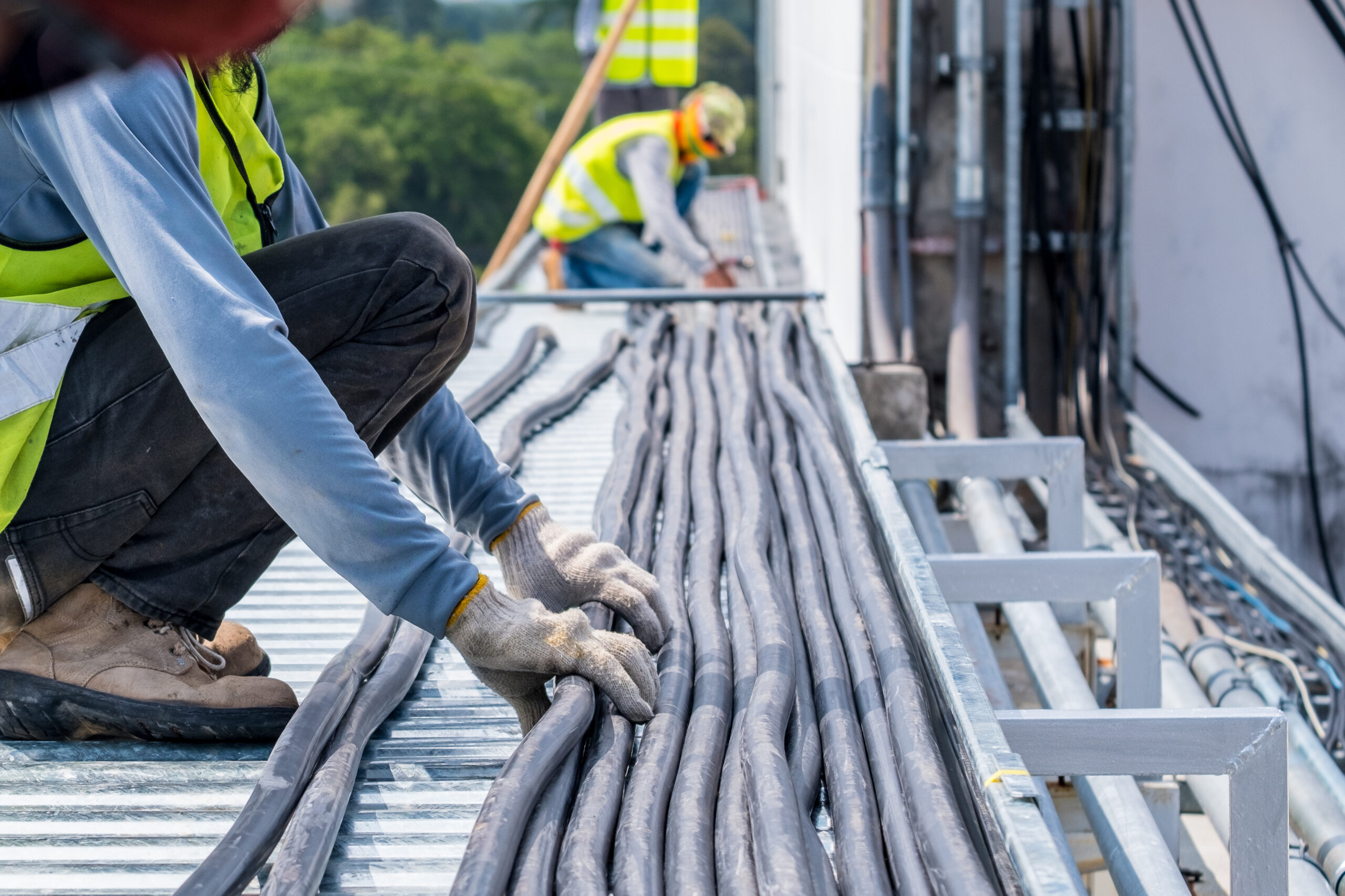Hello! I’m Michael Martin, owner of MRM Construction Services, and today, I want to delve into a topic that’s close to my heart: the advancements in electrical construction and maintenance technology. My journey in the construction industry began with a focus on electrical work, and over the years, I’ve seen remarkable changes that have revolutionized how we approach this essential aspect of building and maintaining structures.
The Evolution of Electrical Construction
When I first started in the construction industry, electrical work was labor-intensive and heavily reliant on manual processes. While the fundamentals of wiring, circuitry, and electrical safety haven’t changed, the tools and technologies we use have evolved dramatically. These advancements have not only improved efficiency but have also enhanced safety, accuracy, and the overall quality of the work we deliver.
Smart Tools and Equipment
One of the most significant changes I’ve witnessed is the introduction of smart tools and equipment. Today’s electricians have access to devices that make tasks faster and more precise. For example, digital multimeters now come with advanced features like data logging and wireless connectivity, allowing electricians to analyze electrical systems more thoroughly. These tools provide real-time data, which is crucial for diagnosing issues and ensuring that installations meet the highest standards.
Another game-changer is the use of thermal imaging cameras. These devices help identify hot spots and potential issues in electrical panels and wiring without the need for invasive inspections. By detecting problems early, we can prevent failures and ensure that systems operate safely and efficiently. This kind of technology wasn’t available when I started, and it’s incredible to see how it has transformed our ability to maintain and troubleshoot electrical systems.
Building Information Modeling (BIM)
Building Information Modeling (BIM) is another advancement that has made a significant impact on electrical construction. BIM is a digital representation of the physical and functional characteristics of a building. For electricians, it means having access to detailed and accurate information about a building’s electrical systems before construction even begins.
With BIM, we can plan and design electrical systems with greater precision, reducing the likelihood of errors and rework. It also facilitates better collaboration with other trades, ensuring that all systems are integrated seamlessly. This level of coordination wasn’t possible before, and it has greatly improved the efficiency and quality of construction projects.
Prefabrication and Modular Construction
Prefabrication and modular construction are trends that have gained momentum in recent years, and they’ve had a significant impact on electrical work. By assembling electrical components in a controlled environment off-site, we can reduce installation time and improve quality control. Prefabrication also minimizes waste and allows for more consistent and reliable installations.
At MRM Construction Services, we’ve embraced these methods for several projects, and the results have been impressive. Prefabrication not only speeds up the construction process but also enhances safety by reducing the time electricians spend on-site. It’s a win-win situation that benefits both the client and the construction team.
Renewable Energy Integration
As the world moves toward sustainability, the integration of renewable energy sources into electrical systems has become increasingly important. Solar panels, wind turbines, and energy storage systems are now common features in both residential and commercial buildings. The technology behind these systems has advanced rapidly, making them more efficient and affordable.
For electricians, this shift presents new opportunities and challenges. Installing and maintaining renewable energy systems requires specialized knowledge and skills. At MRM Construction Services, we’ve made it a priority to stay ahead of the curve by training our team in the latest technologies and techniques. By doing so, we can help our clients reduce their carbon footprint and lower their energy costs.
Smart Homes and IoT
The rise of smart homes and the Internet of Things (IoT) has also had a profound impact on electrical construction and maintenance. Homeowners now expect their electrical systems to integrate with smart devices, providing convenience, security, and energy efficiency. From smart lighting and thermostats to advanced security systems, the demand for connected homes is growing.
This trend has pushed electricians to expand their skill sets and become proficient in installing and configuring smart systems. It’s an exciting development that allows us to offer more value to our clients. At MRM Construction Services, we take pride in staying up-to-date with the latest smart home technologies, ensuring that we can meet the evolving needs of our customers.
The Future of Electrical Construction
Looking ahead, the future of electrical construction and maintenance is bright and full of potential. As technology continues to advance, we can expect even greater improvements in efficiency, safety, and sustainability. Innovations like artificial intelligence, robotics, and advanced materials are likely to play a significant role in shaping the industry.
For those of us in the construction industry, it’s essential to stay informed and adaptable. By embracing new technologies and continually upgrading our skills, we can ensure that we remain at the forefront of the industry and continue to deliver the highest quality service to our clients.
Conclusion
The advancements in electrical construction and maintenance technology have transformed the way we work, and it’s been a privilege to witness and be a part of this evolution. At MRM Construction Services, we’re committed to leveraging these advancements to provide the best possible service to our clients. Whether it’s through the use of smart tools, embracing renewable energy, or integrating smart home systems, we’re always looking for ways to innovate and improve.
Thank you for taking the time to read my thoughts on this exciting topic. I’m passionate about the future of electrical construction, and I look forward to seeing how these technologies will continue to shape our industry in the years to come.
